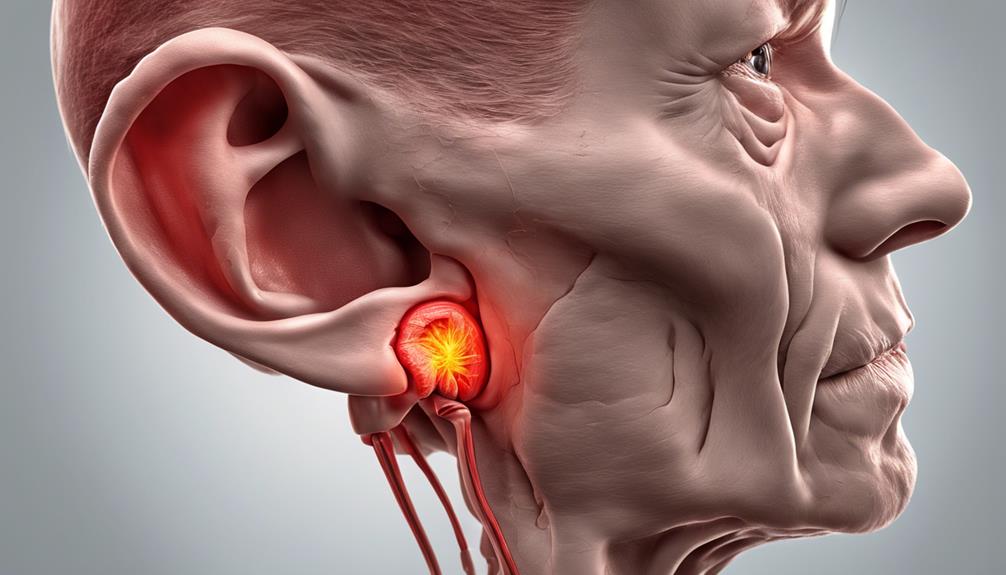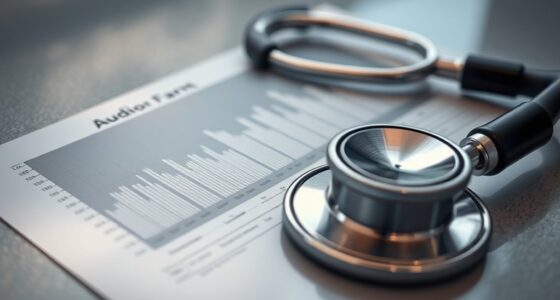Let’s be honest – coping with a sinus infection is never easy, but were you aware that it could also affect your hearing?
The intricate connection between our sinuses and ears means that when sinuses get inflamed, it can lead to issues in our hearing.
Understanding how this link works and the potential consequences it carries is crucial, especially when it comes to preserving our hearing health.
Stay tuned to uncover the lesser-known ways sinus infections could be affecting your ears and what steps can be taken to mitigate these effects.
Key Takeaways
- Sinusitis impacts Eustachian tube function, leading to hearing issues.
- Symptoms include ear pressure, discomfort, and potential temporary or permanent hearing loss.
- Treatment options range from medications to surgical interventions like balloon sinuplasty.
- Prompt sinus infection treatment and proper management help prevent sinus-related hearing complications.

Sudafed PE Sinus Pressure + Pain Relief Tablets, Maximum Strength, Non-Drowsy, OTC Sinus Relief Medicine with Acetaminophen Pain Reliever & Phenylephrine HCl Nasal Decongestant, 24 ct
DECONGESTANT & PAIN RELIEF: 24-count package of Sudafed PE Sinus Pressure and Pain maximum strength non-drowsy decongestant tablets…
As an affiliate, we earn on qualifying purchases.
As an affiliate, we earn on qualifying purchases.
Understanding Sinus Infection and Hearing Loss
When sinus infections occur, they can intricately intertwine with hearing loss, creating a complex relationship that demands understanding and attention. The ear and sinus cavities are closely connected, with the Eustachian tube playing a crucial role in maintaining equal air pressure between the sinuses and the middle ear. Sinusitis, inflammation of the sinuses, can lead to the swelling of these passages, affecting the Eustachian tube's ability to function correctly. This can result in symptoms such as ear pressure, discomfort, and even temporary hearing loss due to the impaired transmission of sound waves.
The pain and discomfort caused by sinusitis can also radiate to the ears, further exacerbating the hearing issues. In some cases, chronic sinusitis can lead to sensorineural hearing loss, a type of hearing impairment that affects the cochlea's ability to transmit sound signals to the brain. It's essential to address sinus infections promptly to prevent complications like hearing loss, as untreated sinus issues can have long-lasting effects on hearing health.
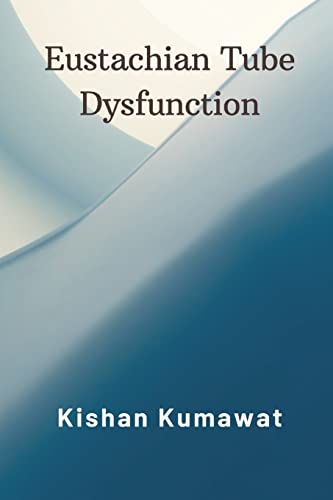
Eustachian Tube Dysfunction
As an affiliate, we earn on qualifying purchases.
As an affiliate, we earn on qualifying purchases.
Symptoms of Sinus Infection and Hearing
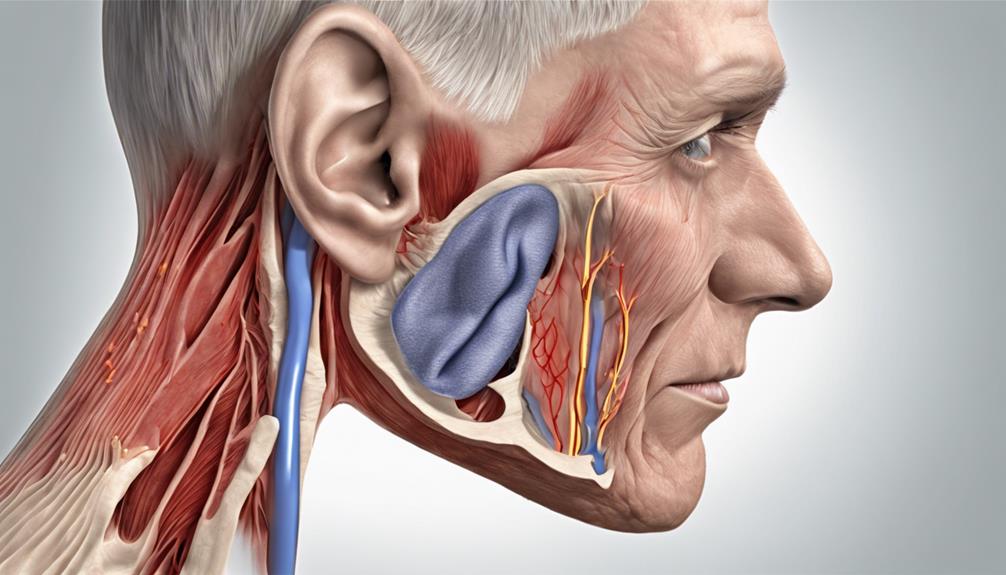
Symptoms commonly associated with sinus infection and hearing issues include ear pain, pressure, and discomfort caused by inflammation affecting the Eustachian tube. When sinuses become inflamed due to infection, the Eustachian tube, responsible for regulating pressure in the middle ear, can become blocked. This blockage leads to a feeling of fullness in the ear, jaw tenderness, and sometimes even earaches.
Additionally, the increased pressure in the middle ear can result in temporary hearing loss. In chronic cases, where sinus infections are left untreated or recur frequently, permanent hearing loss may occur. The hearing loss experienced due to sinusitis is often characterized by difficulties in hearing high-frequency sounds. Alongside hearing issues, some individuals may also experience symptoms like dizziness or tinnitus.
Understanding these symptoms can help individuals recognize the connection between sinus infections and potential hearing problems, prompting timely medical intervention to prevent long-term hearing damage.

Similasan Earache Relief Ear Drops 0.33 Ounce Bottle, #1 Pharmacist Recommended for Ear Pain
Similasan Earache Relief ear drops are the #1 Pharmacist Recommended ear pain drop for earache discomfort, clogged ears,…
As an affiliate, we earn on qualifying purchases.
As an affiliate, we earn on qualifying purchases.
Impact of Sinusitis on Hearing
The impact of sinusitis on hearing can range from temporary to permanent loss, with inflammation and pressure imbalances being key factors in affecting auditory function. Sinusitis, characterized by swelling and inflammation of the sinuses, can also impact the Eustachian tube, a vital passage that helps regulate pressure in the middle ear. When this tube becomes blocked due to sinusitis, it can lead to ear pain, middle ear infections (otitis media), fluid accumulation, and ultimately hearing loss. The pressure imbalances caused by sinusitis can disrupt the delicate mechanisms of the middle ear, affecting sound transmission and perception.
In cases of acute sinusitis, the hearing loss is often temporary and resolves with proper treatment of the sinus infection. However, chronic sinusitis left untreated or inadequately managed can result in permanent hearing impairment. It's crucial to address sinus infections promptly to prevent complications like hearing loss, as fluid buildup and ongoing inflammation can lead to long-term damage within the ear.

WeatherX Headache Prevention– Pressure Filtering Earplug for Shifts in Barometric Weather Pressure, Download Free Alert app (Regular 1 PK)
manufacturer: Cirrus Healthcare Products LLC
As an affiliate, we earn on qualifying purchases.
As an affiliate, we earn on qualifying purchases.
Treatment Options for Hearing Loss
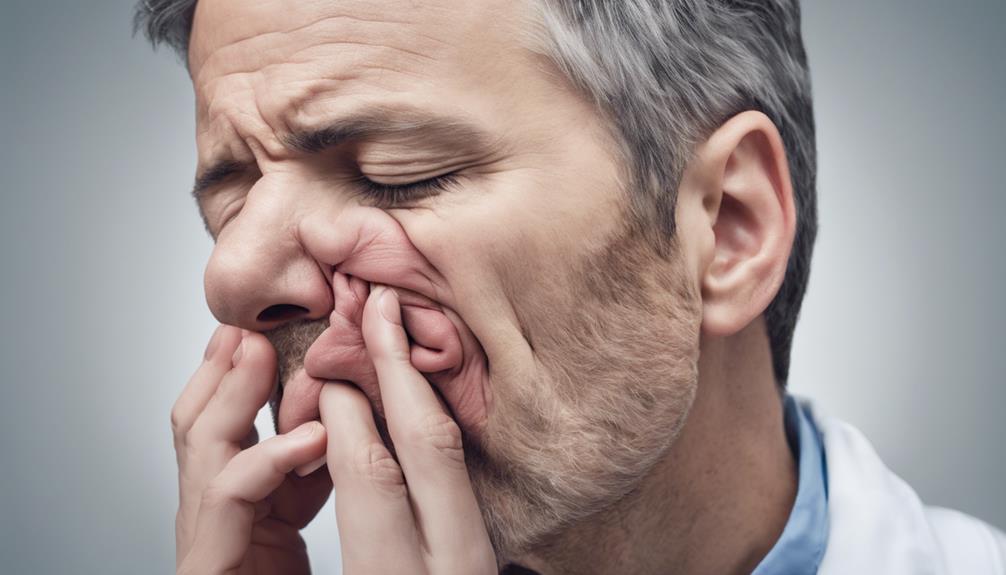
To address hearing loss related to sinus infections, various treatment options encompass medications such as antibiotics for bacterial infections and antifungals for fungal infections. Decongestants and nasal corticosteroids play a crucial role in reducing inflammation and congestion in the sinuses. By improving Eustachian tube function, these medications help alleviate ear-related symptoms and restore hearing.
In cases where sinusitis causes significant hearing loss, surgical interventions like sinus surgery or tympanostomy tubes may be recommended to address the underlying issues and restore hearing function effectively. Balloon sinuplasty, a minimally invasive procedure, can also be beneficial in treating chronic sinusitis, reducing symptoms that contribute to hearing loss.
Regular follow-up with an ear, nose, and throat specialist is essential to monitor sinus health, manage symptoms, and address any persistent ear-related issues promptly. By utilizing these treatment options, individuals can target the root cause of hearing loss associated with sinus infections and work towards improving their auditory health.
Preventing Hearing Loss Due to Sinus Infections
Proper management of sinus infections is paramount in preventing both temporary and permanent hearing loss. To safeguard your hearing health and reduce the risk of complications associated with sinus infections, consider the following strategies:
- Seek Timely Treatment: Address sinus infections promptly to prevent the progression of the condition and potential impact on hearing.
- Opt for Appropriate Medications: Use prescribed medications such as decongestants, saline spray, antihistamines, and mucolytics to manage sinusitis effectively and minimize the risk of hearing loss.
- Consider Balloon Sinuplasty: For chronic sinusitis cases that may affect hearing, exploring treatments like balloon sinuplasty can help alleviate sinus issues and mitigate potential hearing loss.
- Monitor Ear Health: Stay vigilant for symptoms like ear pain, fluid buildup, or otitis, as these can indicate complications related to sinus infections that may lead to permanent hearing loss.
Frequently Asked Questions
How Does Sinus Infection Cause Hearing Loss?
Sinus infections can lead to Eustachian tube swelling, impacting middle ear pressure and causing hearing loss. Pressure imbalances from sinusitis can affect ear function, causing symptoms like ear pain and muffled hearing.
Fluid buildup in the ear due to sinus infections may contribute to temporary or permanent hearing loss. The interconnectedness of ears and sinuses can result in symptoms like tinnitus and ear pressure during sinus infections.
Timely treatment is crucial to prevent complications, including hearing loss due to Eustachian tube dysfunction.
How Long Does It Take to Fully Recover From Sinusitis?
Recovery from sinusitis hinges on various factors like the infection type and severity. Acute sinusitis often clears up in 1 to 2 weeks with proper care, while chronic cases may require several weeks to months for full healing.
Subacute sinusitis falls in between, typically resolving within 4 to 12 weeks. Adhering to treatment plans and seeking timely medical help play pivotal roles in expediting recovery.
How Can I Get My Hearing Back From Sinuses?
To regain hearing affected by sinus issues, seeking prompt treatment is crucial. Medications, decongestants, and saline spray can aid in alleviating sinus-related hearing loss.
In cases of chronic sinusitis impacting hearing, balloon sinuplasty may be recommended. Timely management of sinus infections can prevent long-term hearing damage.
Proper care and treatment of sinusitis are essential for restoring hearing affected by sinus problems.
How Do You Relieve Sinus Pressure in Your Ears?
We can relieve sinus pressure in our ears by using warm compresses to reduce inflammation and nasal decongestants to clear passages. Yawning can open the Eustachian tube, while chewing gum and the Valsalva maneuver can help equalize pressure.
Staying hydrated is important to keep mucus thin for better drainage. By following these methods, we can alleviate discomfort and promote ear health.
Can Sinus Infections and TMJ Cause Similar Types of Hearing Loss?
Yes, there is a strong TMJ and hearing loss connection. Both sinus infections and TMJ can cause similar types of hearing loss due to the close proximity of the ear to the temporomandibular joint. Pressure from inflammation or misalignment can affect the Eustachian tube and lead to hearing issues.
Conclusion
In conclusion, sinus infections can impact our hearing by causing pressure in the middle ear and affecting the Eustachian tube. Recognizing the symptoms of sinusitis and seeking proper treatment is crucial in preventing potential hearing loss.
By addressing sinus infections promptly with medications, decongestants, and saline sprays, we can protect our hearing and maintain optimal ear health. Remember, early intervention is key to preserving our ability to hear clearly and effectively.

